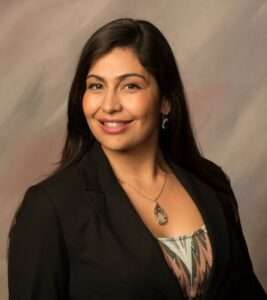The greater San Diego region is at the forefront in addressing global marketplace needs with its connections to important partners. The links between the United States and Mexico are of vital importance to the role in international markets. Accordingly, the California-Baja California Border Master Plan is a binational effort to coordinate the planning and delivery of projects at land ports of entries and the transportation infrastructure serving them.
In this Q&A, we connect with Director of Programs and Policy Jacqueline Reynoso, to discuss the progress of working on transforming the San Diego region in preparation for the future.
You have been at the forefront of assisting SANDAG and regional mobility and its border transportation needs. Please tell us where it started and where we are today!
“SANDAG selected Cordoba’s innovative Binational Trolley Crossing (BTX) concept, using a proposed public-private partnership (P3) model, to meet the needs of the Regional Transportation Plan, achieve California’s aggressive climate goals and improve equitable outcomes for the border region within 10 years. BTX offers a unique solution to modernize mobility at the San Ysidro Port of Entry by offering a first-of-its-kind cross border transit connection between San Diego and Tijuana via a one-mile elevated guideway, connecting advanced transit clearance facilities (ATCF) with the Smart Gates Program to clear customs and immigration, and optimization of the San Ysidro Transit Center as a mobility hub to integrate binational transit. We have secured a Cooperative Agreement with SANDAG to plan, design, and finance project development. We are seeking funding from both public and private sources to complete the required permit application processes for U.S. and Mexico Presidential Permits for Border Crossings. Cordoba’s binational stakeholder engagement process includes an integrated governance structure where planning and permitting agencies in the U.S. and Mexico can align priorities, advance required approvals, and together, find solutions to address technical, policy, and legal solutions to project development. “
How do you help clients such as SANDAG prepare for the future of our ports of entry?
“Cordoba recognizes the importance of co-planning with Mexico and other trade partners, Tribal governments, and interregional neighbors in Los Angeles, Orange, Riverside, and Imperial counties on transportation, energy and water supply, environment, economic development, and homeland security. Our cross functional expertise among our four sectors, coupled with our in-depth understanding of public policy, project finance, and binational planning provides our clients with the competitive advantage to deliver complex projects efficiently and sustainably. Our ability to bridge government, academia, industry, business, community organizations, elected officials and foreign partners at all levels strengthens our approach to stakeholder engagement; All critical partners are engaged early and often to advance mobility projects from planning, to design and engineering, environmental clearance, finance, and construction of critical infrastructure at our ports of entry.”
Is there a part of this project you’re particularly proud of?
“This transformative project will have the capacity to move over 10 million passengers per year, providing an efficient, reliable and cleaner travel option for workers, tourists and families who cross the border each day. BTX has already gained early support of local, state, and federal stakeholders in the United States and Mexico. This success is due in part to the project’s wholistic benefits to the binational region including improved air quality, reduced border wait times, improved economic competitiveness, and immense opportunities for urban revitalization and transportation network integration between Tijuana and San Diego. Moreover, the project was nominated as an Impact project for the 2024 World Design Capital, demonstrating to the world the project’s ability to unite binational leadership, implement innovative design, and significantly improve the quality of life for Cali-Baja and the nearly 200,000 daily border crossers.“
Why or what makes you proud to be a “Cordobian”?
“Cordoba is not just an engineering firm, we are leaders in the field with a deep commitment to the communities we serve. Beyond delivering projects on time and on budget, we are deeply engaged in advancing social equity through our involvement with local nonprofits and community-led initiatives. Cordoba recognizes each team member’s strength and nurtures both professional and organizational development for the benefit of our clients and the community at large.“
Background of the Interviewee:
Jacqueline L. Reynoso possesses nearly 20 years of executive management experience in program development, project management, public policy, stakeholder engagement, and regional planning efforts in Southern California and the Cali-Baja binational mega-region. Jacqueline currently serves as the Communications Director overseeing the Customer Outreach Portfolio for the Energy Sector’s Project Management Office for the SDG&E 20SD Surcharge Program; as Project Director for the SANDAG Request for Innovative Concepts (RFIC) Binational Trolley Crossing (BTX); and as the Regional Client Manager in Southern California. Her past experience as Project Manager for Santa Clara Valley Water District’s Five-Year DEI Strategic Master Plan, 12 years as a Non-profit CEO, leading a municipal Economic Development Department, working in Real Estate Management for the Centre City Development Corporation, as Manager of Board and Shareholder Relations of Promerica Bank in Los Angeles, and as Executive Fellow with Office of Attorney General Bill Lockyer in the state capital, compliment her working knowledge of legislative affairs, sustainability, equity-based solutions, regional energy, water and transportation issues, school bond programs, and redevelopment authorities. Ms. Reynoso graduated Magna Cum Laude from UC Berkeley and received a B.A. in Psychology with a Minor in Public Policy. In 2006, she was awarded the prestigious presidential scholarship and earned her Master’s Degree in Public Policy from Harvard University at the John F. Kennedy School of Government. From 2001-2002, she studied Italian Language and Culture in Siena, Italy at the Universita Per Stranieri.


